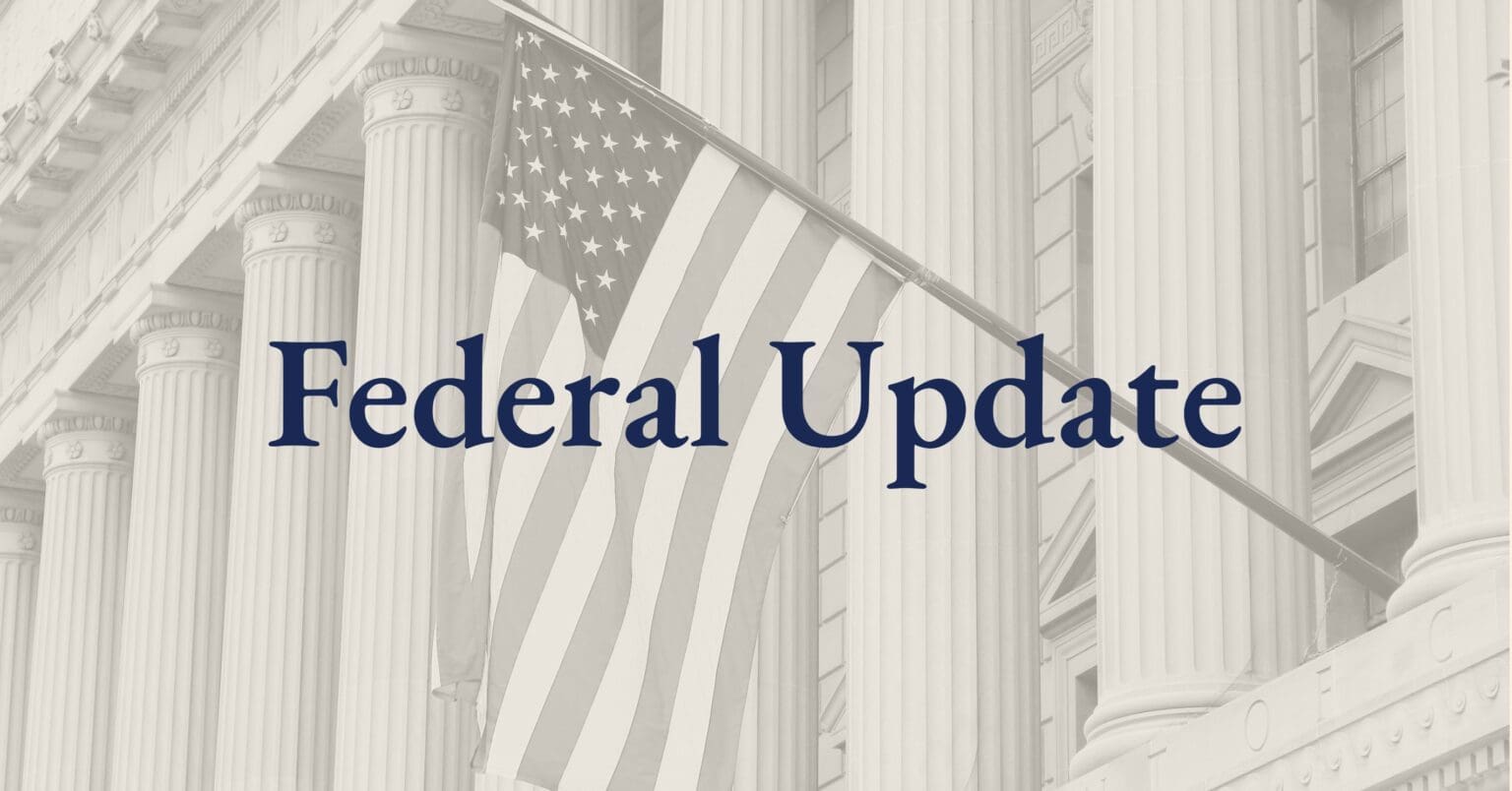Federal Update: Congress Remains Deadlocked as Shutdown Enters Fourth Week
Back to News
This week, the Senate rejected the House-passed short-term funding bill (H.R. 5371) for the twelfth time, extending the federal government shutdown into its fourth week. Earlier today, the chamber also failed to advance legislation (S. 3012) that would have paid “excepted” federal employees, including active-duty military personnel and essential staff working without pay. Democrats opposed the measure, arguing that it gave the Trump administration too much discretion over which workers would be paid. Competing proposals from Democrats to pay all federal employees also stalled.
Republican leaders plan to continue introducing targeted funding bills next week, including measures to pay military personnel and to compensate TSA employees and air traffic controllers. Meanwhile, with the current proposal to extend government funding through November 21 appearing increasingly untenable, GOP leaders have begun privately debating the duration of any future stopgap measure. Some conservatives have proposed a continuing resolution (CR) lasting through December 2026, while Republican appropriators and moderates favor a shorter-term extension. A growing number of party leaders appear to be coalescing around a CR extending through late January, though no final decision has been made. Despite these ongoing discussions, Congress remains no closer to ending the shutdown than when it began.
As the shutdown continues, its effects are spreading across the public sector and broader economy. Federal employees are expected to miss their first full paycheck on October 24, and the Federal Aviation Administration has reported staffing shortages leading to flight delays at major airports. Small-business lending, federal permitting, and other administrative services remain stalled, and many federal offices are operating with minimal staff. However, following pressure from congressional Republicans, the Trump administration announced that USDA will reopen Farm Service Agency offices nationwide to restore core operations, including the processing of farm loans and commodity program payments to producers.
A growing concern for California’s counties is the looming November 1 “food-aid cliff.” At least 25 states have warned that they will be forced to pause Supplemental Nutrition Assistance Program (SNAP) benefits, threatening food assistance for more than 4.5 million Californians.
In response, a coalition of more than 40 Democratic senators – including Senators Alex Padilla (D-CA) and Adam Schiff (D-CA) – has urged USDA Secretary Brooke Rollins to immediately release available contingency funds to sustain SNAP through November. The senators emphasized that USDA has multiple legal authorities to extend benefits.
Meanwhile, Senator Josh Hawley (R-MO) is expected to propose separate legislation to continue SNAP benefits for the duration of the shutdown.
November 1 also marks the start of open enrollment for Affordable Care Act health plans, which Democrats believe could increase pressure on Republicans to negotiate, particularly amid rising premium costs. Meanwhile, Republicans are emphasizing the potential lapse in SNAP benefits to highlight the shutdown’s impact on low-income households.
Senate Panel Advances Fix Our Forests Act
This week, the Senate Committee on Agriculture, Nutrition, and Forestry voted 18–5 to advance the Fix Our Forests Act (FOFA; S. 1462), comprehensive bipartisan legislation aimed at restoring forest health, increasing resiliency to catastrophic wildfires, and protecting communities in the wildland-urban interface. The bill – sponsored by Senators Alex Padilla, John Curtis (R-UT), John Hickenlooper (D-CO), and Tim Sheehy (R-MT) – serves as the Senate companion to the House-passed version (H.R. 471) and reflects months of bipartisan negotiations to improve vegetation management practices, streamline environmental reviews, and strengthen coordination among federal, state, tribal, and local partners.
The Senate bill also includes several notable additions to the House version, including the creation of a Wildfire Intelligence Center, modeled after the National Weather Service, to serve as a centralized hub for real-time data, predictive modeling, and interagency coordination. It also expands opportunities for local government engagement, enhances the Community Wildfire Defense Grant Program, broadens watershed protection efforts, and strengthens cooperative authorities for mitigation work and fireshed assessments.
It should be noted that Senator Adam Schiff, who serves on the committee, was among those voting against the bill. While supportive of many of FOFA’s goals, he expressed concerns about the U.S. Forest Service’s reduced staffing capacity, the lack of authorized funding to implement the reforms, and provisions that would modify the judicial review process for forest management projects.
With bipartisan support in both chambers and growing national attention on wildfire resilience, FOFA is positioned to play a leading role in shaping future federal forest and wildfire policy discussions.